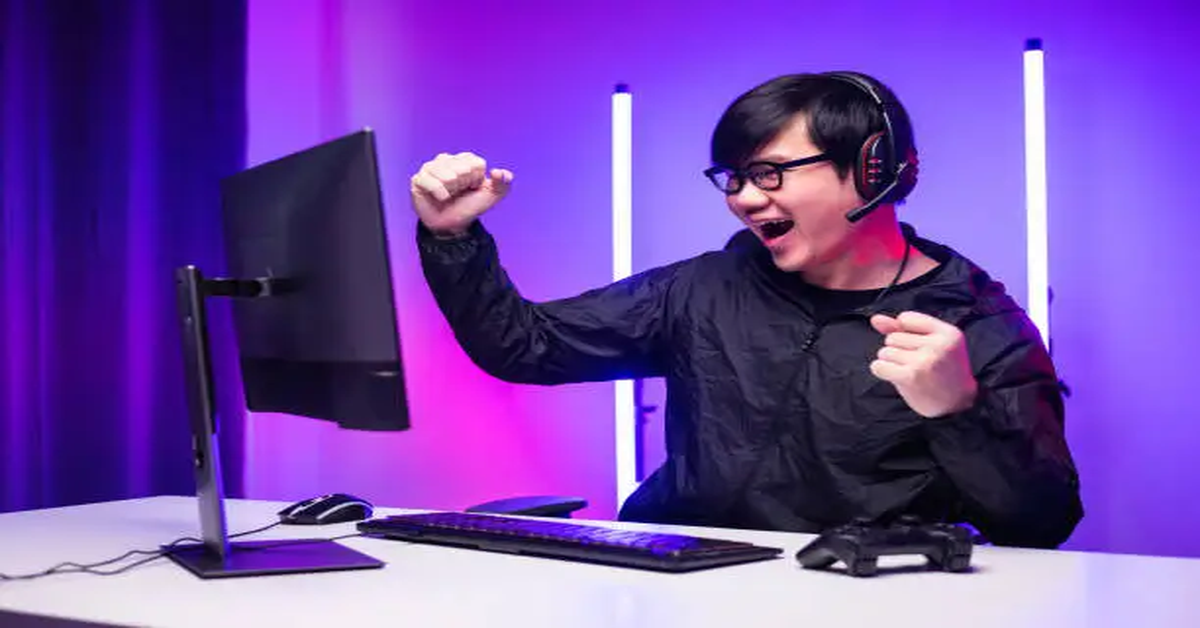
The phrase “Gamer Challenger” is more than just a label for someone who enjoys playing video games. It embodies the spirit of competition, growth, and mastery within the gaming world. At its core, a gamer challenger is not only someone who plays but someone who tests their limits, takes on difficult tasks, competes against others, and continually evolves. In today’s digital era, where esports and competitive gaming are thriving, the role of the gamer challenger has become even more significant.
In this long-form guide, we will explore what it means to be a gamer challenger, how the concept applies to esports and everyday gaming, the skills required, the strategies used, the tools and training methods involved, and the broader cultural and social importance of this identity. By the end, you will understand why the “gamer challenger” identity has become a benchmark for ambition and success in the gaming community.
Understanding the Concept of Gamer Challenger
A gamer challenger can be described as a player who is actively pushing beyond casual gameplay. They do not merely play for relaxation but also to achieve, compete, and master. This may involve striving for higher ranks in competitive games, participating in tournaments, or challenging themselves through difficult in-game content.
Unlike casual gamers, challengers thrive on:
- Competition: Facing equally skilled or stronger opponents.
- Progression: Unlocking higher achievements, ranks, or rewards.
- Learning: Adapting strategies and refining skills continuously.
- Resilience: Bouncing back after losses or setbacks.
The mindset is as important as the gameplay, and this makes the gamer challenger a unique archetype within the gaming world.
The Rise of Competitive Gaming
To understand the gamer challenger, it’s important to see how competitive gaming itself has evolved. Gaming was once seen purely as entertainment, but today, it is recognized as a global industry worth billions of dollars. Esports tournaments draw audiences of millions, and professional gamers are celebrated like athletes.
Key Milestones in Competitive Gaming
| Year | Milestone | Importance |
|---|---|---|
| 1980s | Early arcade competitions | Laid foundation for competitive play |
| 1997 | Red Annihilation Quake tournament | First major PC gaming competition |
| 2000s | Rise of online multiplayer games | Global competition became possible |
| 2010s | Esports leagues established | Professional gaming gained structure |
| 2020s | Streaming platforms integration | Gamers monetize skills and build careers |
The gamer challenger thrives in this environment, where ambition is rewarded and gaming is seen as both a hobby and a professional pursuit.
Traits of a Gamer Challenger
A gamer challenger is defined not by their game library but by their attitude, approach, and resilience.
- Persistence: Willingness to keep trying after repeated failures.
- Strategic Thinking: Ability to adapt tactics in real time.
- Patience: Understanding that mastery takes time and effort.
- Focus: Blocking out distractions to stay committed to improvement.
- Teamwork: Working with others in team-based challenges.
- Passion: Genuine love for the game that fuels growth.
These traits reflect why challengers succeed where casual gamers may give up.
Skills Every Gamer Challenger Needs
Becoming a gamer challenger requires a blend of technical, mental, and social skills.
Technical Skills
- Hand-Eye Coordination – Essential for reaction-heavy games.
- Precision and Timing – Mastering controls for accuracy.
- Game Knowledge – Understanding mechanics, maps, and meta-strategies.
Mental Skills
- Adaptability – Adjusting to new strategies and opponents.
- Decision-Making – Choosing quickly in high-pressure situations.
- Emotional Control – Handling frustration and avoiding tilt.
Social Skills
- Communication – Critical for multiplayer and team-based games.
- Leadership – Guiding teams toward victory.
- Networking – Building connections in gaming communities.
Table: Key Skills of a Gamer Challenger
| Skill Type | Example | Importance |
|---|---|---|
| Technical | Fast reflexes, accuracy | Winning duels and matches |
| Mental | Adaptability, focus | Overcoming challenges |
| Social | Team coordination | Succeeding in group competitions |
Training as a Gamer Challenger
Just like athletes, gamer challengers must train to improve. Training isn’t only about playing more but also about playing smarter.
Training Methods
- Practice Routines: Scheduled gaming sessions with clear goals.
- Watching Replays: Reviewing past matches to learn mistakes.
- Studying Meta: Keeping up with changing game strategies.
- Physical Health: Maintaining posture, diet, and exercise for better reflexes.
- Community Engagement: Sharing tips and learning from others.
A challenger mindset views every gaming session as an opportunity to grow and refine skills.
Esports and the Gamer Challenger
In esports, the term “challenger” often has literal meaning. Many competitive games (like League of Legends) use “Challenger” as their highest ranking tier. Reaching this rank is a badge of honor, achieved only by the top fraction of players.
Esports players embody the gamer challenger spirit by dedicating countless hours to training, teamwork, and competing in tournaments.
Table: Esports and Challenger Tier
| Game | Challenger Rank Meaning | Percentage of Players in Tier |
|---|---|---|
| League of Legends | Top-tier rank | <0.01% |
| Apex Legends | Predator/Challenger | <1% |
| Fortnite | High-rank challenger leagues | Top 1–2% |
| DOTA 2 | Immortal/Challenger | Small elite group |
This highlights how the concept of being a gamer-challenger is not just philosophical but also institutionalized in the gaming ecosystem.
Gaming Platforms and Tools for Challengers
To succeed, gamer challengers rely on hardware, software, and support systems.
- Hardware: High-refresh monitors, mechanical keyboards, gaming mice, headsets.
- Software: Game analytics tools, aim trainers, recording software.
- Platforms: Esports leagues, streaming services, training apps.
Challengers recognize that their tools impact performance just as much as skill.
Challenges Faced by Gamer Challengers
The journey of a gamer-challenger is not without obstacles:
- Burnout: Too much gaming can cause physical and mental fatigue.
- Toxicity: Competitive environments sometimes foster negative behavior.
- Balance: Managing gaming with real-life responsibilities.
- Injuries: Issues like carpal tunnel syndrome and eye strain.
Overcoming these challenges requires discipline, community support, and self-awareness.
The Social Impact of Gamer Challengers
Challengers inspire others, showing what dedication and persistence can achieve. They contribute to:
- Community Growth: Sharing strategies and motivating others.
- Cultural Recognition: Gaming is now seen as a serious pursuit.
- Diversity: Encouraging participation across genders and regions.
- Innovation: Driving game developers to create more competitive and balanced content.
The gamer challenger is not just an individual but part of a larger ecosystem shaping the future of entertainment and competition.
ALSO READ: NLPadel: A Comprehensive Guide to Growth, Benefits, and the Future of Padel
The Future of Gamer Challenger
Looking ahead, the identity of the gamer-challenger will grow even more important as gaming continues to expand.
- Virtual Reality Challenges: Fully immersive competitions.
- AI-Powered Training: Machine learning analyzing player weaknesses.
- Cross-Platform Competitions: Expanding community inclusivity.
- Gamified Education: Using challenger systems in learning environments.
- Global Integration: Esports recognized alongside traditional sports.
The evolution of gaming ensures that challengers will always find new ways to test their skills and prove their passion.
Conclusion
The gamer challenger is the ultimate symbol of ambition in gaming. It represents persistence, discipline, and love for the craft. Unlike casual players, challengers embrace the challenges of difficult gameplay, competitive tournaments, and personal growth. They inspire others, influence game design, and contribute to the growing recognition of gaming worldwide.
By understanding what it means to be a gamer-challenger, we see that it is not just about winning matches—it is about cultivating a mindset of continuous improvement, resilience, and excellence. As gaming evolves with new technologies and platforms, the gamer challenger will continue to be the heart of this ever-expanding industry.
FAQs
1. What does “gamer challenger” mean?
A gamer challenger is someone who pushes beyond casual play, competing, improving, and striving for mastery in gaming.
2. How is a gamer challenger different from a casual gamer?
Challengers focus on competition, improvement, and progression, while casual gamers primarily play for entertainment and relaxation.
3. Which games use “Challenger” as a rank?
Games like League of Legends, Apex Legends, Fortnite, and DOTA 2 use challenger-level rankings for elite players.
4. What skills do gamer challengers need?
They need technical accuracy, mental adaptability, and social teamwork skills to succeed in competitive environments.
5. What is the future of gamer challengers?
With VR, AI tools, and esports growth, gamer challengers will have even more platforms to compete, train, and grow globally.







